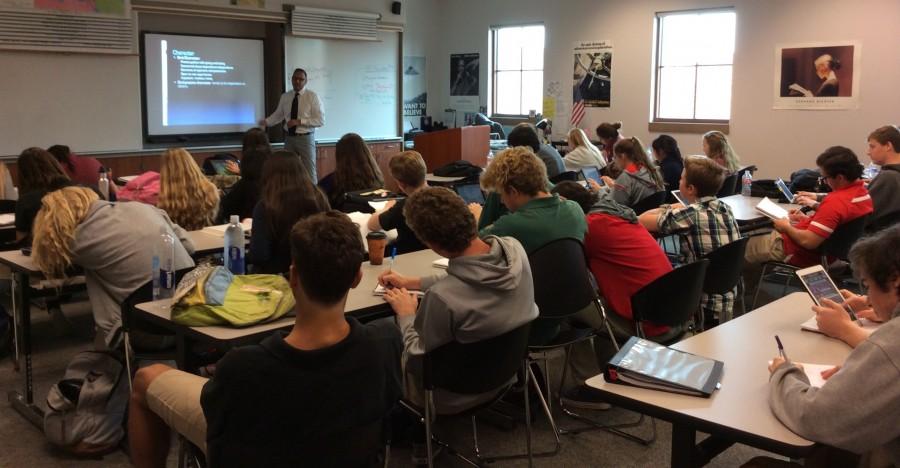AP Psychology conducts surveys, studies human mind
February 27, 2015
If you are a faculty member or student of CCHS, you may have noticed the students of Mr. Frank Caro’s AP Psychology Class traveling from classroom to classroom on campus, taking surveys, and analyzing data that most people would not understand last semester. However, for the “Psych” kids, these surveys gathered information that they used for their AP Psychology final. The Psychology Class was told to construct their own psychological study based off of the classical ones they had been learning about last semester.
One example of the studies conducted by the class was called “schema building.” Psychology student Olivia Staser explained schema building as a way of “constructing a net of related words which tracks the way people think depending on the order of words which connect to an idea they were given,” she said.
Schema building is based on the idea that when given a word and limited time, the first things we write down are what we closely relate to that word. Our ideas are physically represented in our brains by neurons. When we hear a word, the neuron fires and ignites the neurons closest to it.
In Olivia’s group, they wanted to analyze how the connected ideas varied between students and teachers, between males and females, and then identify what could have caused the differences. Things such as cultural expectations, experience, and upbringing could have affected the results.
The results of the Schema for the word nets of five teachers and nine students started with the words school, love and beauty. For school, the results were not surprising. Teachers generally had a positively based word net for school, while most students had a negative or neutral one. The most common words related to school were stress, grades, and work.
However, both the teachers and the students were found to have a positive trend for the word ‘love.’ But less than half of the students wrote a family member on their schema for the word love, while every teacher who was tested did.
For the word ‘beauty,’ women and both teachers and students, focused on cosmetic beauty. They listed things a woman does to increase attractiveness– words like ‘size,’ ‘cosmetics’ and ‘clothing.’
On the other hand, males focused on physical traits they perceived as beautiful, using words like ‘sexuality,’ and ‘attractiveness.’ Some even listed specific female celebrities they found attractive. Nonetheless, there was a commonality among adults to associate the word beauty with ideas concerning nature and positive character traits, such as ‘confidence,’ ‘love,’ and ‘trust.’
Each AP Psychology class split up into four or five groups with each group working on their own project. Some groups were studying the creation and manipulation of false memory or faulty recollection. Other groups were observing context-based memory or relation-based recollections. Overall, the AP Psychology class is constantly studying and observing a wide array of topics concerning the human mind, even into the second semester.






















































